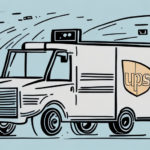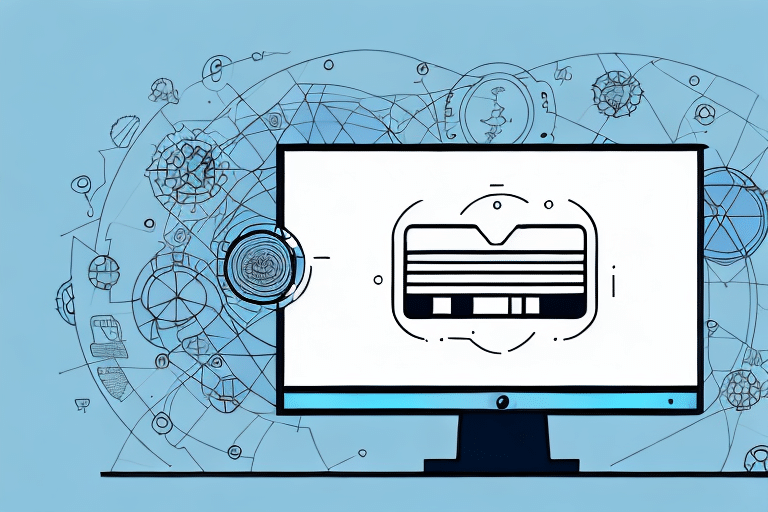How to Become a Certified Bill Receiver
If you're interested in becoming a certified bill receiver, you're likely aware of the critical role that efficient and accurate bill processing plays in modern businesses. According to the U.S. Bureau of Labor Statistics, the demand for skilled financial professionals continues to grow in today's fast-paced economy. Certified bill receivers are essential for managing accounts payable and receivable effectively. Here's a comprehensive guide on how to become a certified bill receiver and kickstart your career.
Understanding the Basics of Bill Receivables
At its core, bill receivables is a process for managing accounts payable and receivable. This includes tracking and processing invoices, payments, and other financial transactions. As a bill receiver, you'll need to have a deep understanding of financial systems and be able to communicate effectively with stakeholders both within and outside your organization.
One important aspect of bill receivables is managing cash flow. This involves ensuring that payments are received on time and that there is enough cash on hand to cover expenses. According to a study by Investopedia, effective cash flow management can reduce the risk of financial shortfalls and enhance business sustainability.
Another key responsibility of a bill receiver is maintaining accurate records. This includes keeping track of invoices, payments, and other financial transactions, as well as reconciling accounts and preparing financial reports. Attention to detail and numerical proficiency are essential skills for success in this role.
Why Become a Certified Bill Receiver?
Obtaining certification as a bill receiver is an excellent choice for individuals seeking to advance their careers in finance or accounting. It provides specialized expertise in an area that is consistently in high demand, potentially leading to higher salaries and increased job security. Additionally, certification distinguishes you from other candidates, showcasing your dedication and proficiency in the field.
Moreover, certified bill receivers possess the skills necessary to manage and maintain precise financial records. This capability is crucial for businesses to ensure that all financial transactions are accurately recorded and accounted for. Certified professionals can also offer valuable insights and recommendations to management on improving financial processes and reducing operational costs.
Furthermore, certification can open doors to diverse career opportunities across various industries such as healthcare, retail, and manufacturing. The growing need for financial professionals specializing in bill receivables allows certified bill receivers to explore different career paths and assume more responsible and rewarding roles.
The Benefits of Being a Certified Bill Receiver
There are numerous benefits to becoming a certified bill receiver:
- Competitive Edge: Certification enhances your resume, making you more attractive to employers and potentially leading to higher salaries.
- Enhanced Skills: Gain comprehensive knowledge and skills necessary to excel in bill receivables management, ensuring accuracy and efficiency in your duties.
- Career Advancement: Certification can qualify you for promotions and higher-level positions within your organization, increasing job satisfaction and professional growth.
- Credibility: Certification provides an additional layer of credibility, demonstrating your expertise and commitment to the field.
Additionally, certified bill receivers are better equipped to understand and navigate the complexities of billing and invoicing, which is particularly beneficial for those running their own businesses or working as freelancers. This expertise helps prevent costly mistakes and ensures timely and accurate payments.
Requirements for Becoming a Certified Bill Receiver
To become a certified bill receiver, you must meet specific requirements set by accrediting organizations. Typically, these include:
- Relevant Experience: A minimum amount of experience in bill receivables or a related financial field.
- Formal Training: Completion of a accredited training program that covers essential topics such as billing and collections, cash application, and credit management.
- Examination: Passing a certification exam that assesses your knowledge and skills in bill receivables.
Some accrediting bodies may also require applicants to provide professional references or endorsements from previous employers or industry colleagues. It is crucial to research the specific requirements of the certification program you are interested in and ensure you meet all necessary qualifications before applying.
How to Prepare for the Certification Exam
Preparing for the certification exam involves a combination of independent study and formal coursework. Here are some strategies to help you succeed:
- Understand the Exam Format: Research the structure and types of questions that will be on the exam to familiarize yourself with what to expect.
- Utilize Study Materials: Make use of textbooks, online courses, and practice tests specifically designed for the certification.
- Create a Study Schedule: Develop a consistent study plan that allows you to cover all necessary material without last-minute cramming.
- Join Study Groups: Collaborate with peers or join a study group to enhance your understanding and stay motivated.
- Maintain Well-being: Ensure you get adequate rest and nutrition leading up to the exam to maintain focus and mental clarity.
What to Expect During the Certification Exam
The certification exam for bill receivables typically lasts around three hours and includes a variety of question types, such as multiple-choice, case studies, and practical applications. The exam covers topics including:
- Financial Reporting
- Account Reconciliations
- Payment Processing
- Billing and Collections
- Credit Management
In addition to theoretical knowledge, the exam may require you to apply your skills to real-world scenarios, such as analyzing financial data or identifying discrepancies in billing statements. Some sections may also include practical tasks involving relevant software or tools used in bill receivables management.
Tips for Passing the Certification Exam with Flying Colors
To maximize your chances of passing the bill receivables certification exam on your first attempt, consider the following tips:
- Leverage All Study Resources: Utilize online courses, textbooks, and practice exams to build a comprehensive understanding of the material.
- Simulate Test Conditions: Take practice exams under timed conditions to become comfortable with the exam's pacing and pressure.
- Stay Organized: Keep your study materials and schedule well-organized to ensure you cover all necessary topics effectively.
- Seek Support: Join study groups or find a study partner to help keep you motivated and accountable.
- Read Instructions Carefully: During the exam, thoroughly read and understand each question and instruction to avoid mistakes.
Remember, persistence is key. If you don't pass on your first attempt, analyze your performance to identify areas for improvement and continue preparing with renewed focus.
How Long Does it Take to Become a Certified Bill Receiver?
The time required to become a certified bill receiver varies based on individual circumstances, including prior experience and the specific certification program chosen. Generally, the certification process can take anywhere from six months to a year. Factors influencing the timeline include:
- Experience Level: Individuals with relevant financial experience may complete the certification more quickly.
- Program Structure: Intensive programs may allow for faster completion, while part-time or self-paced programs may extend the timeline.
- Additional Certifications: Pursuing multiple certifications or specializations within bill receivables can lengthen the overall process.
It's important to choose a certification program that aligns with your career goals and availability to ensure a manageable and efficient certification journey.
How Much Does it Cost to Become a Certified Bill Receiver?
The cost of becoming a certified bill receiver varies depending on the certification program and the resources you choose. Typical expenses include:
- Registration Fees: Ranging from $200 to $500 for exam registration.
- Study Materials: Books, online courses, and practice exams can cost between $100 and $300.
- Training Courses: Formal training programs may range from $500 to $2,000, depending on the provider and duration.
Additionally, there may be costs associated with recertification or continuing education requirements to maintain your certification status.
Where to Find Accredited Programs for Bill Receivables Certification
Accredited programs for bill receivables certification can be found through various sources, including:
- Online Education Providers: Platforms like Coursera, Udemy, and LinkedIn Learning offer specialized courses in bill receivables and related financial management topics.
- Community Colleges: Many community colleges provide certification programs in finance and accounting, including bill receivables management.
- Professional Organizations: Organizations such as the American Collectors Association and the National Association of Certified Valuators and Analysts offer accredited certification programs and resources.
Ensure that any program you consider is accredited by a recognized professional body to guarantee the quality and validity of your certification.
How to Choose the Right Program for Your Needs and Budget
When selecting an accredited program for bill receivables certification, consider the following factors:
- Accreditation: Verify that the program is accredited by a reputable professional organization.
- Program Length: Choose a program duration that fits your schedule and career timeline.
- Cost: Ensure the program aligns with your budget, considering both tuition and ancillary costs.
- Curriculum: Assess whether the program covers all necessary topics and offers practical training in relevant software and tools.
- Reputation: Read reviews and testimonials from current or former students to gauge the program's quality and effectiveness.
Additionally, consider reaching out to program administrators or attending information sessions to gather more insights before making your decision.
What You'll Learn in a Bill Receivables Certification Program
During a bill receivables certification program, you'll gain a comprehensive understanding of financial systems and specialized skills, including:
- Accounts Payable and Receivable Management: Techniques for efficiently tracking and processing invoices and payments.
- Collections and Credit Management: Strategies for managing credit extended to clients and collecting overdue payments.
- Financial Reporting: Methods for preparing accurate financial reports and reconciling accounts.
- Industry-Specific Software: Training in software tools commonly used in bill receivables, such as QuickBooks, SAP, or Oracle Financials.
- Regulatory Compliance: Understanding of relevant financial regulations and best practices for compliance.
This training equips you with the practical knowledge and technical skills necessary to excel in bill receivables management and contribute effectively to your organization's financial health.
Common Mistakes to Avoid When Pursuing Certification as a Bill Receiver
When pursuing certification as a bill receiver, it's essential to avoid common pitfalls that can hinder your progress:
- Poor Exam Preparation: Inadequate study can lead to unsatisfactory exam performance. Ensure you thoroughly understand the exam content and format.
- Choosing Unaccredited Programs: Enrolling in non-accredited programs may result in lower-quality training and credentials that are not recognized by employers.
- Ignoring Continuing Education: Failing to engage in ongoing learning can result in outdated knowledge and skills, affecting your professional effectiveness.
- Overlooking Practical Skills: Focusing solely on theoretical knowledge without gaining practical experience can limit your ability to perform effectively on the job.
Avoiding these mistakes will help you maintain a clear path toward certification and ensure that you gain the most value from your certification journey.
Career Opportunities for Certified Bill Receivers
As a certified bill receiver, you'll have access to a diverse range of career opportunities across various industries. Potential roles include:
- Accounts Receivable Specialist: Manage incoming payments and ensure the accuracy of financial records.
- Billing Coordinator: Oversee the billing process, including invoice generation and payment tracking.
- Financial Analyst: Analyze financial data to support business decisions and improve financial processes.
- Finance Director or Controller: Take on leadership roles that involve overseeing an organization's financial operations and strategy.
- Collections Manager: Lead a team responsible for collecting overdue payments and managing client credit.
Certified bill receivers are valuable assets to organizations, as they ensure the smooth operation of financial processes and contribute to the overall financial health of the business. With experience and continued education, you can advance to senior positions that offer greater responsibilities and rewards.
Overall, becoming a certified bill receiver is an excellent pathway for those looking to advance their careers in finance or accounting. By completing a rigorous training program and passing the certification exam, you demonstrate your expertise and commitment to the field, positioning yourself for a fulfilling and lucrative career.




















